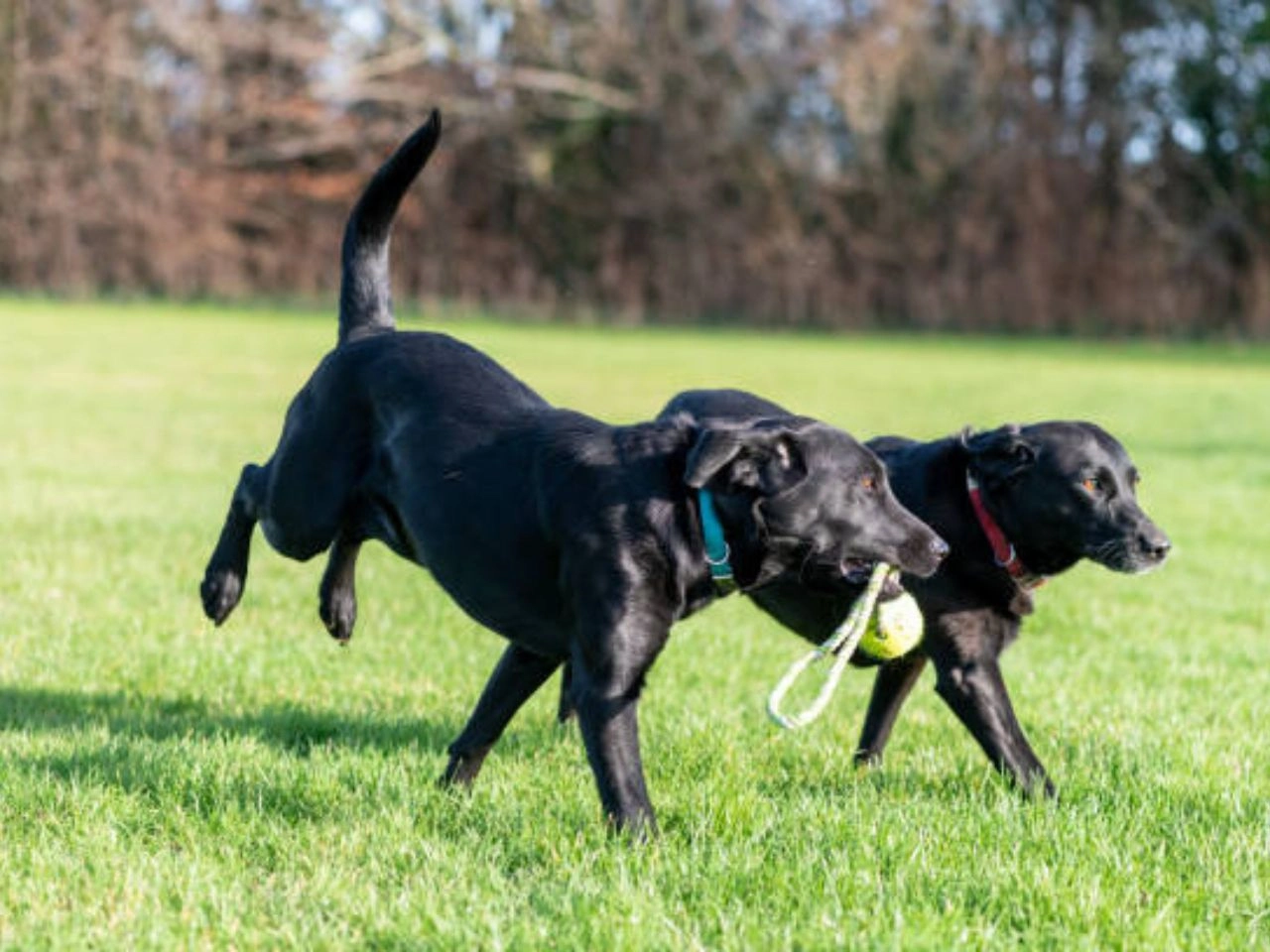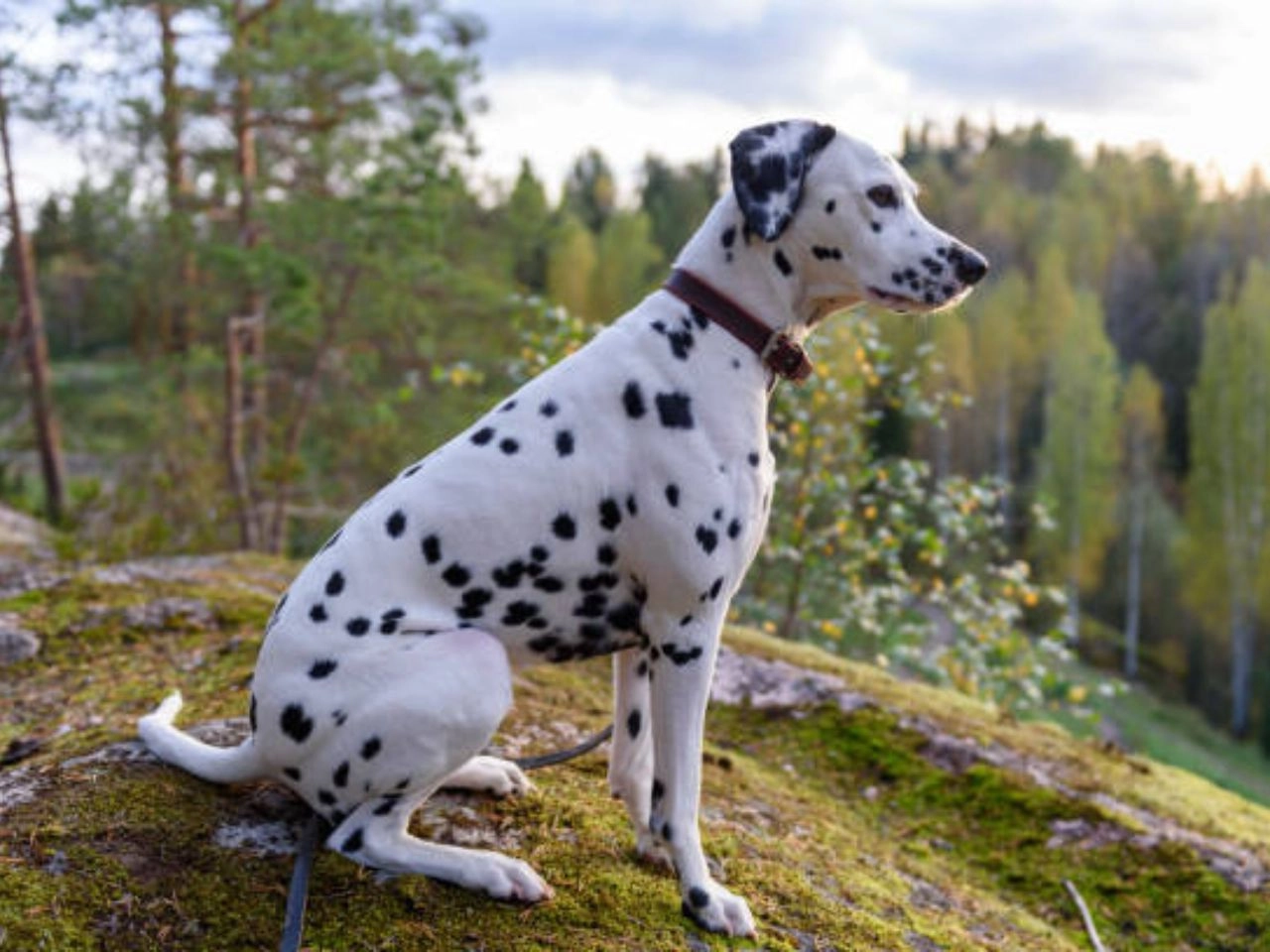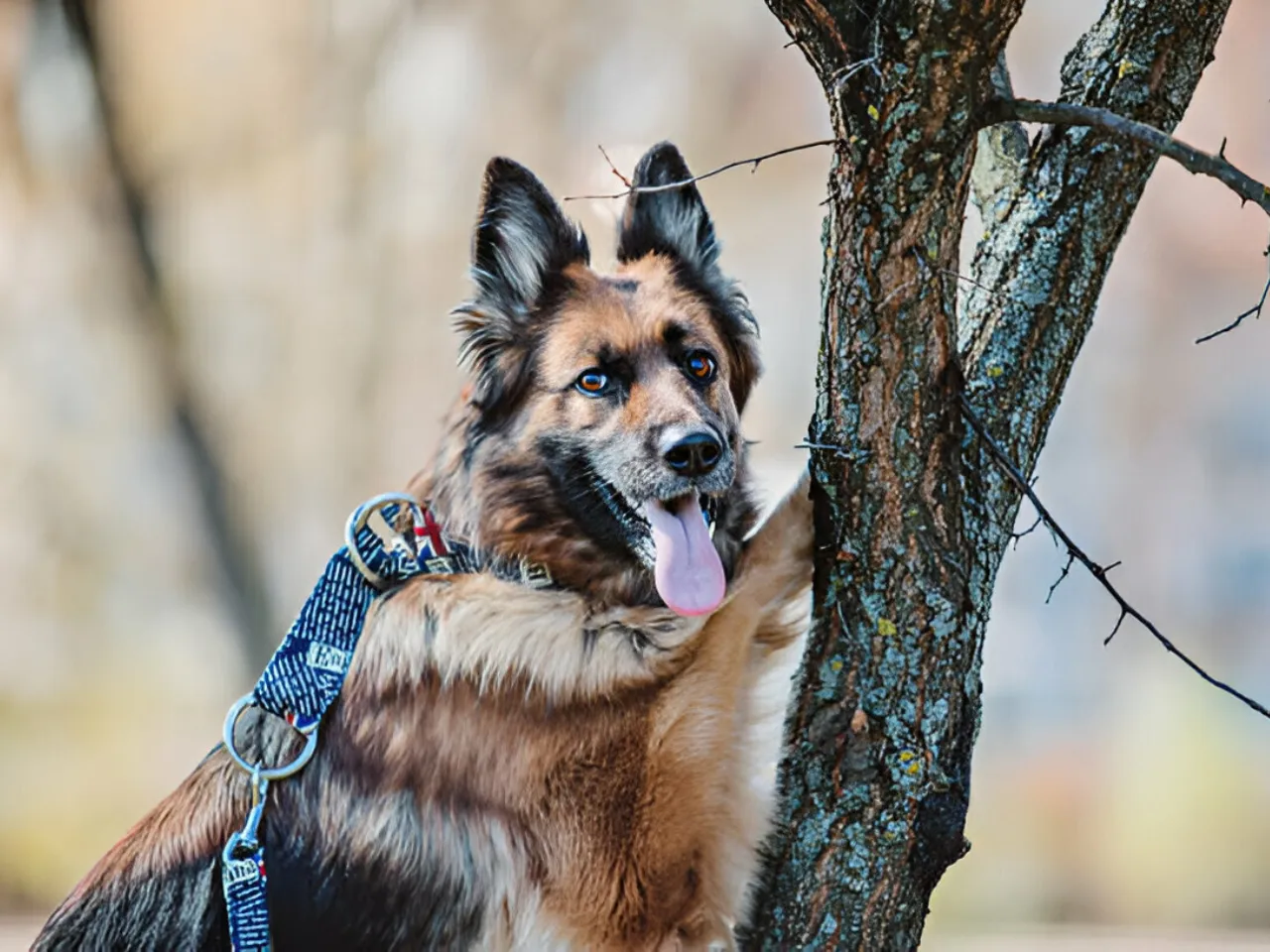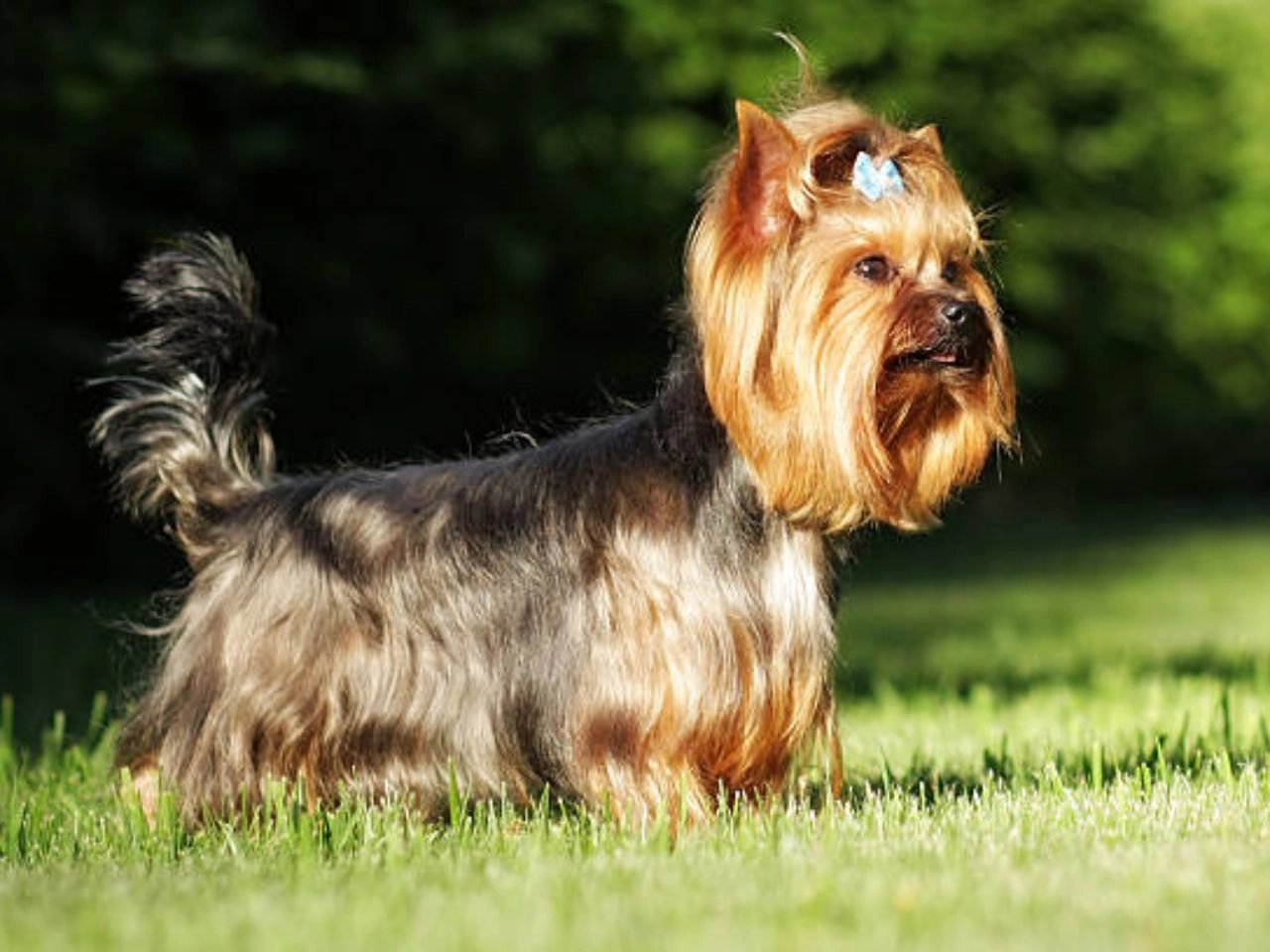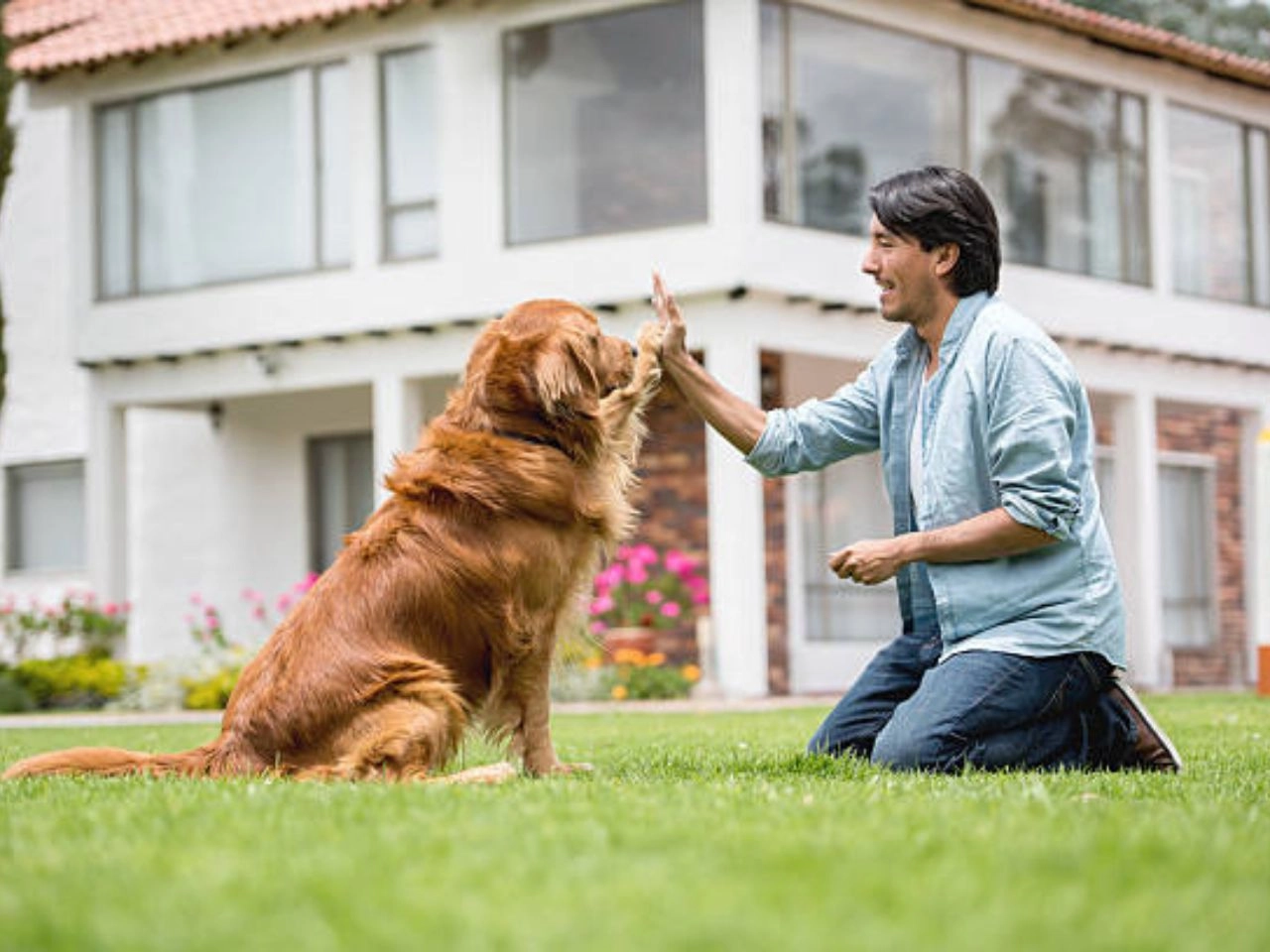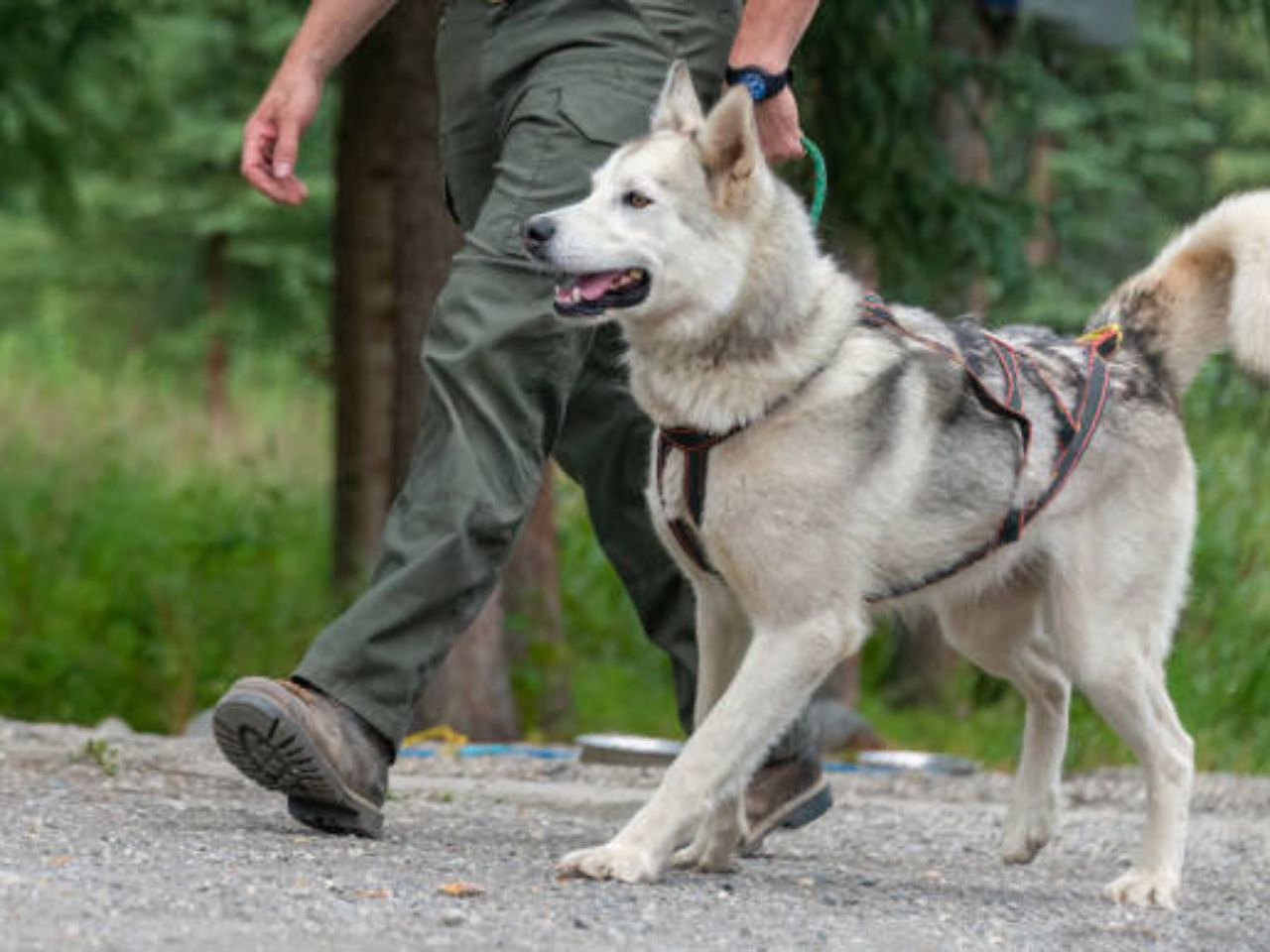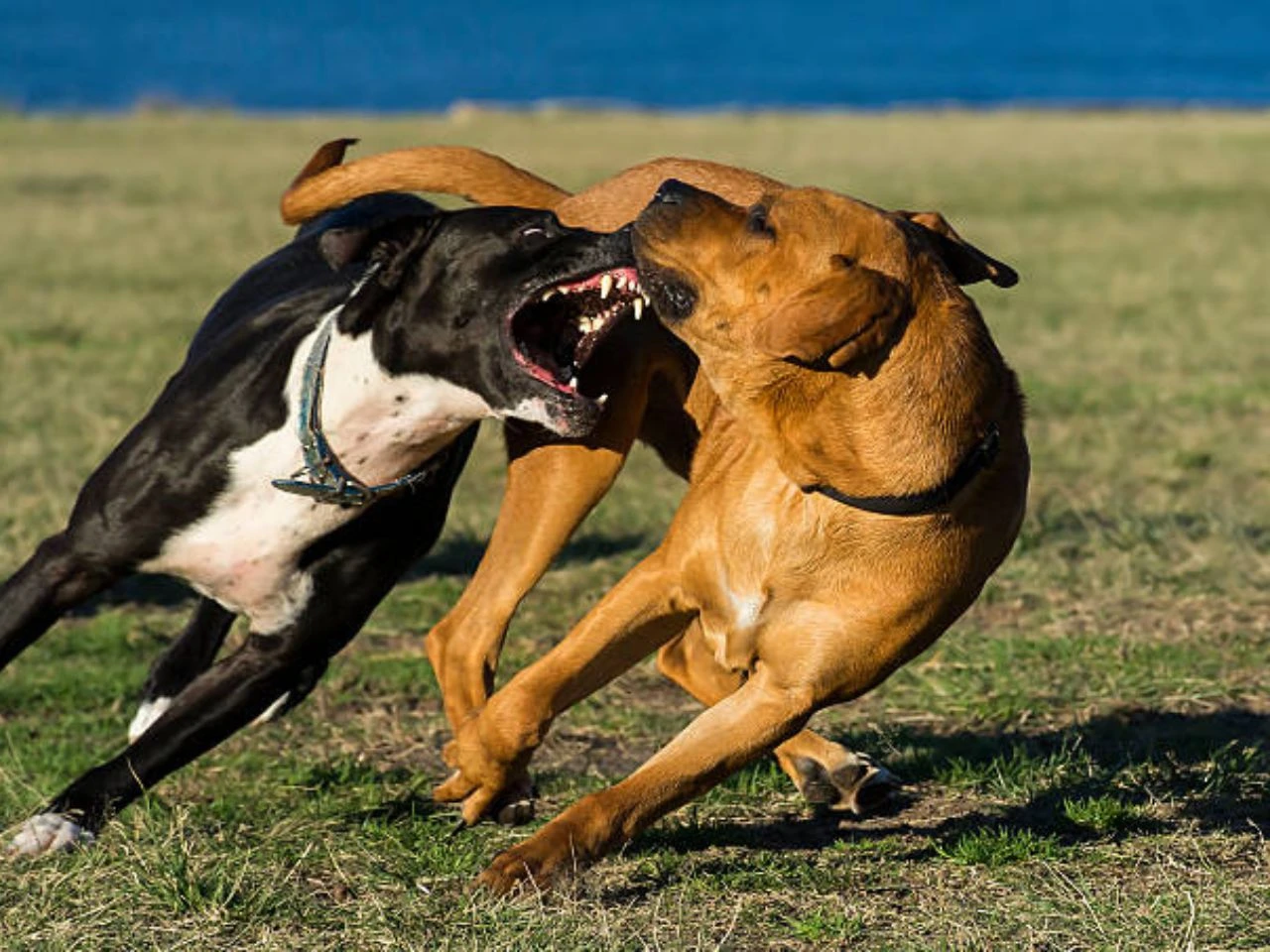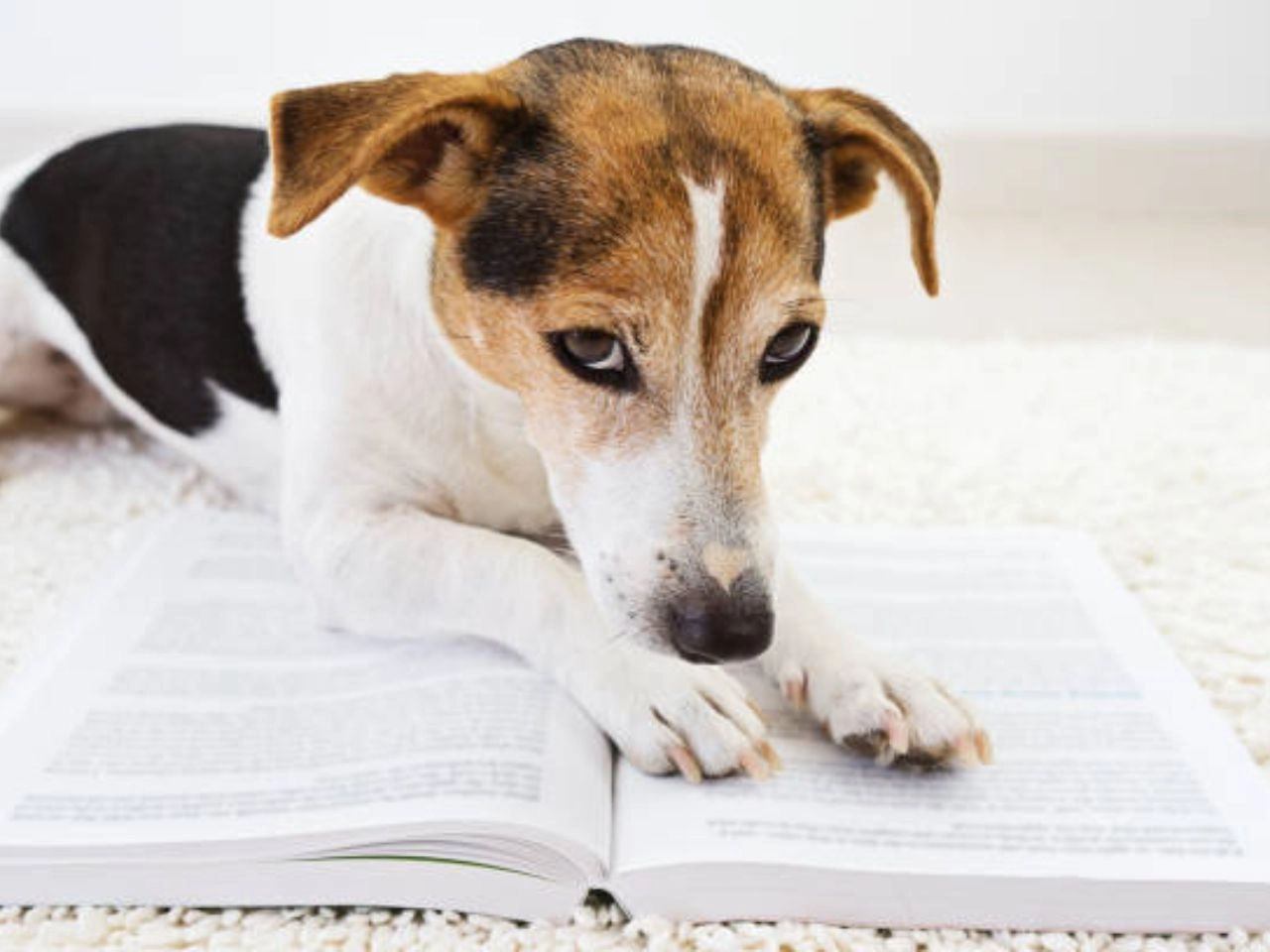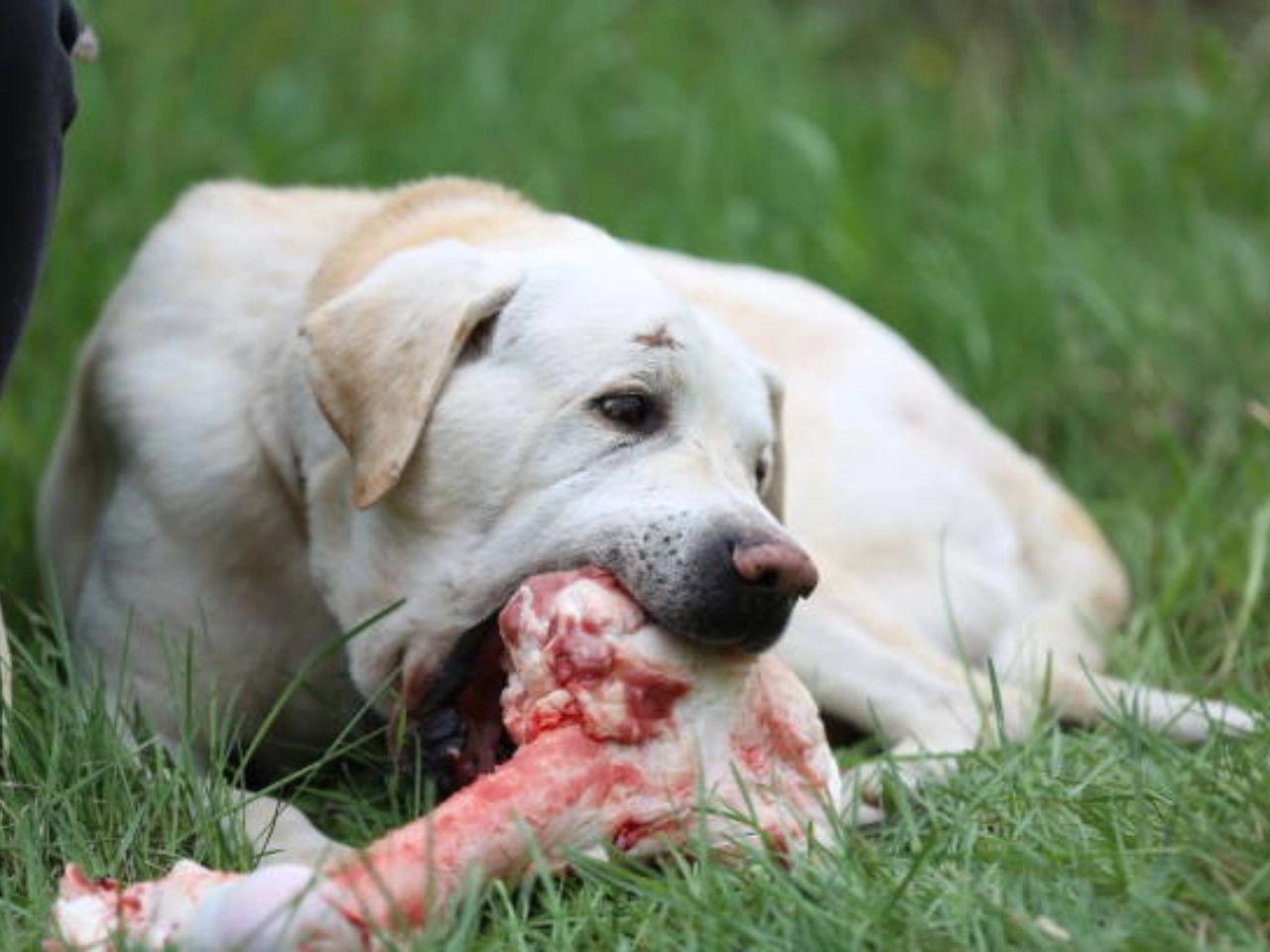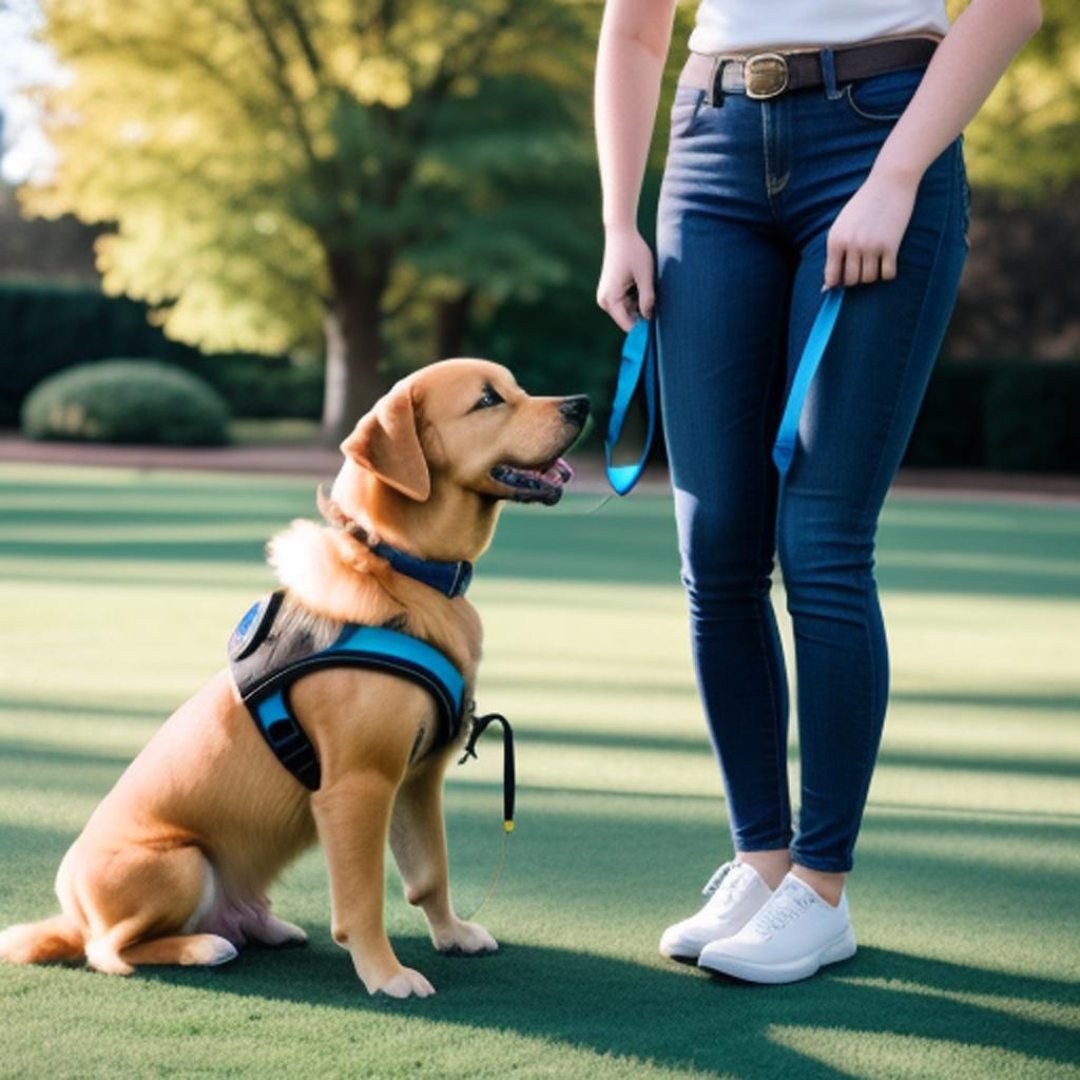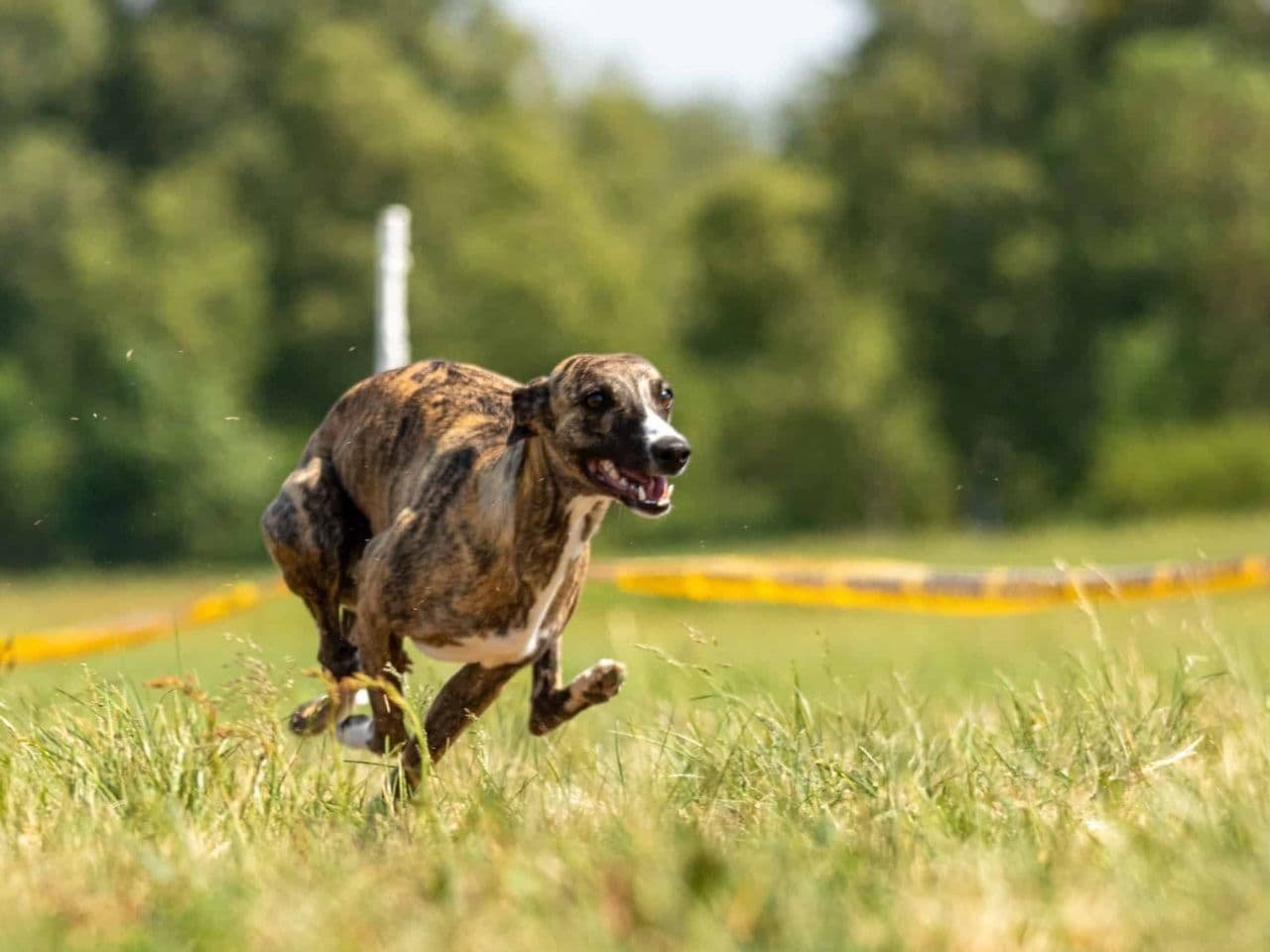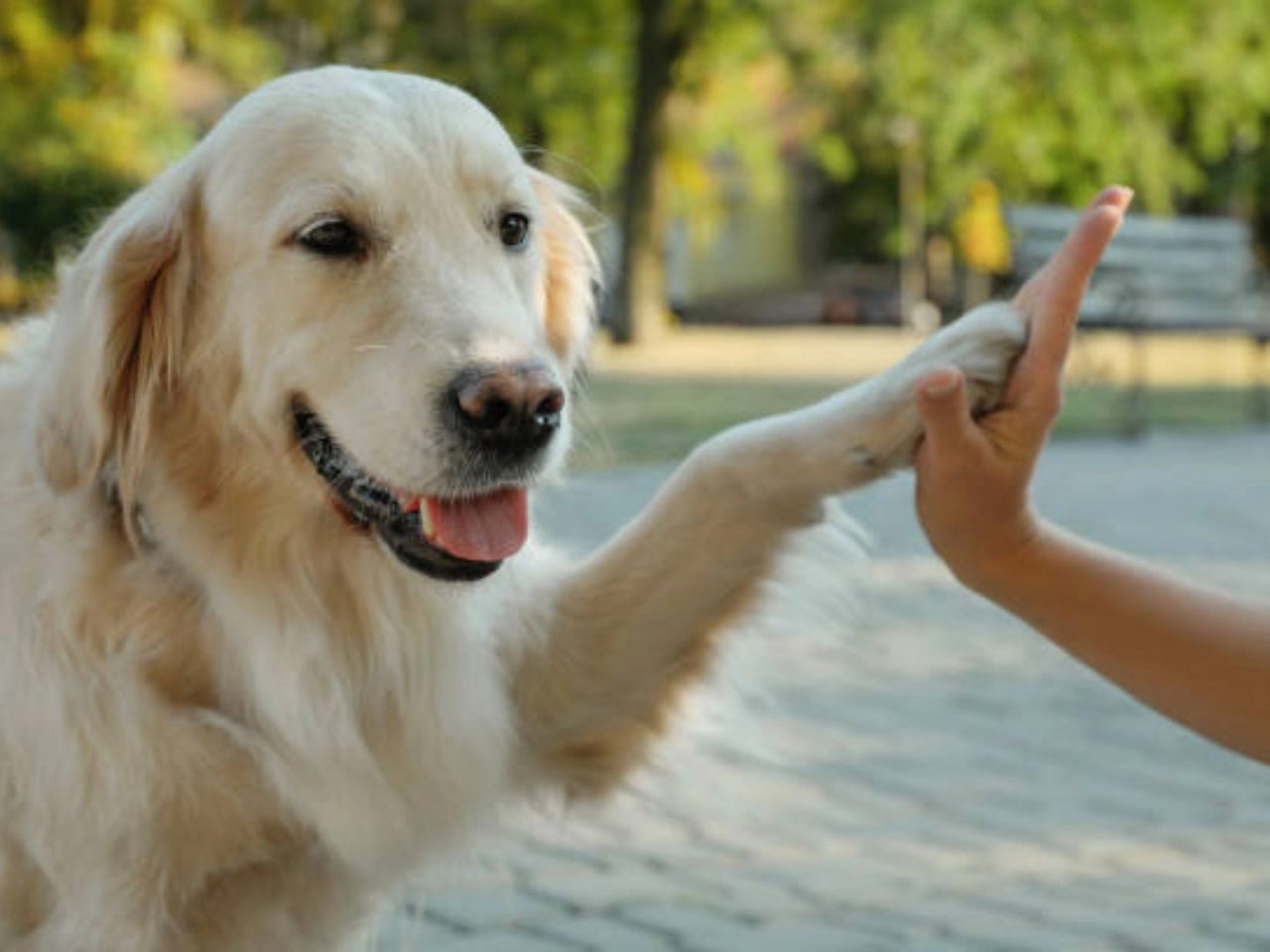Your dog may lick your face aggressively as a sign of affection or to seek attention. It can also be a behavior learned from their mother’s grooming.
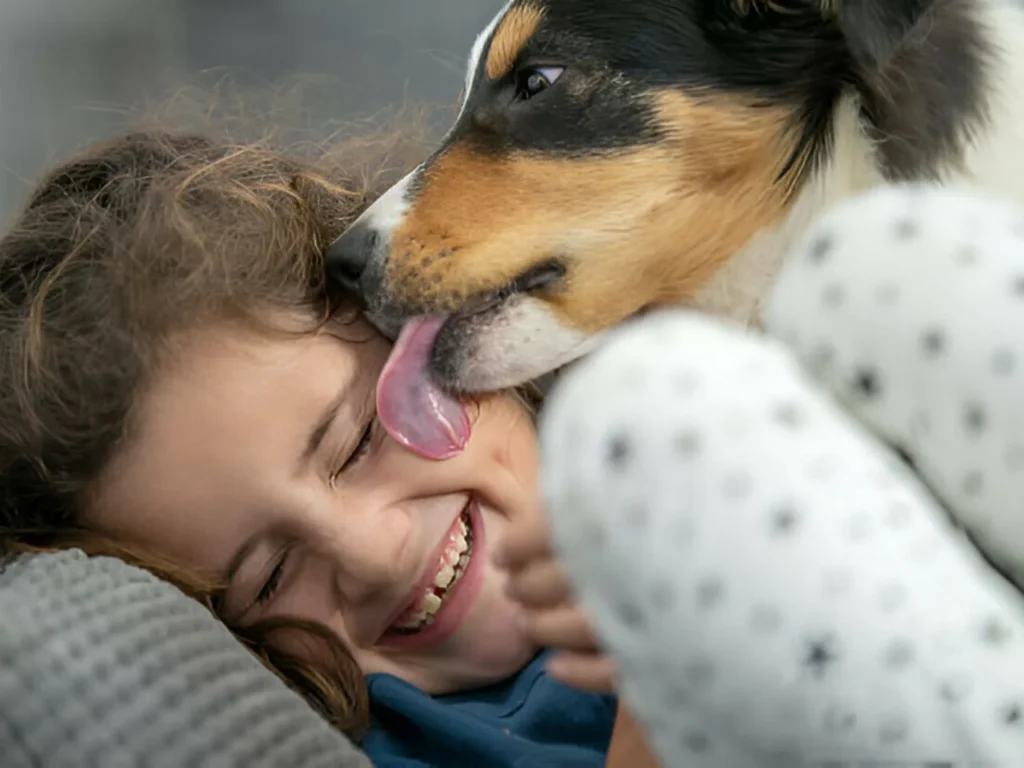
Dogs often communicate through body language and actions, such as licking. A dog vigorously licking your face usually signals that they feel comfortable with you, expressing love, and respect, or desiring something, like food or playtime. It’s an instinctive action dog exhibit from puppyhood, initially a way to bond and interact with their mothers and littermates.
Owners should recognize this behavior as part of their dog’s social habits. Understanding why your furry friend is so enthusiastic with their tongue can strengthen your bond and help you address the behavior if it becomes excessive or unwanted. Remember, consistent training and positive reinforcement can shape your dog’s licking into an acceptable form of interaction.
- Dog Licking: An Instinct Or Affection?
- Is Your Dog Really Being Aggressive?
- Decoding The Doggy Love Language
- The Role Of Socialization In Dog Behavior
- Health Conditions That Trigger Excessive Licking
- Exploring Anxiety And Stress In Dogs
- The Quest For Attention: Understanding Your Dog
- Behavioral Training To Curb Over-licking
- Pack Behavior And Dominance
- Nutritional Deficiencies And Licking Compulsions
- The Impact Of Taste And Smell
- Building A Better Bond With Your Dog
- When To Consult A Professional
- FAQ For Why Does My Dog Lick My Face Aggressively
Dog Licking: An Instinct Or Affection?
Ever noticed your furry friend coming up to you and giving your face a good, enthusiastic lick? This behavior puzzles and delights many pet owners. But what’s the real reason behind these slobbery kisses?
The Science Behind Licking
Dogs lick for various reasons, some rooted in instinct and others in behavior. From birth, puppies experience licking as a form of communication with their mother. Mothers lick to clean their pups and to stimulate body processes. This early grooming acts as their first bonding experience. As they grow, dogs continue to associate licking with care and affection.
Licking also releases pleasurable endorphins which calm and comfort dogs. This can explain why some dogs may lick more aggressively when they feel anxious or overjoyed.
Misinterpreting Dog Signals
Understanding a dog’s body language is crucial. Licking, especially when it seems aggressive, could be a sign of stress or overstimulation. It’s easy to confuse these licks for affection when they might be a plea for attention or even space.
- Quick, persistent licks could indicate the dog is feeling anxious.
- Focused licking in one area may be a sign of physical discomfort.
- Licking accompanied by whining or pacing suggests the dog wants something.
Recognize and respect your dog’s space. This ensures a strong, trusting bond. Remember, not all licks equal love; some signal more complex emotions or needs.
Is Your Dog Really Being Aggressive?
You might be puzzled by your furry friend’s face-licking habits. Dogs often express their affection through licks, but sometimes their behavior might feel more intense than a gentle show of love. One important question arises: is your dog being aggressive, or just overly enthusiastic? Let’s unpack the dog’s behavior to help you understand their licking actions better.
Understanding Aggression Vs. Enthusiasm
Distinguishing between aggression and enthusiasm is crucial in your dog’s behavior. Dogs do not have words, so they use body language to communicate. Aggressive and enthusiastic licking look different:
- Enthusiastic licking is usually accompanied by a loose, wiggly body and a wagging tail.
- Aggressive behavior may include stiffening of the body and a still tail.
Barking, growling, or snapping along with licking could signal aggression. On the other hand, play bows and excited jumping are signs of joy. Watch for these cues to understand your dog’s emotions.
Signs Of True Aggressive Behavior
True aggression stems from anxiety, fear, or territorial instincts. Recognize it through clear signs:
| Body Language | Sound | Action |
| Ears pinned back | Growling | Nipping or biting |
| Fur bristled | Snarling | Staring intensely |
| Rigid posture | Barking | Lunging forward |
Understand that aggressive licking is rare. A dog’s lick often denotes love, respect, or a request for attention. It’s essential not to confuse excitement with aggression. If you still feel unsure, consult a professional trainer or a behaviorist. They can provide insight and help to modify unwanted behavior.
Decoding The Doggy Love Language
The bond between dogs and their owners is unique and often expressed in mysterious ways. In trying to decipher the canine code of affection, understanding why a dog licks a human’s face aggressively is crucial. Here is what this behavior might signify in the doggy love language.
The Link Between Licking And Love
Licking is a fundamental gesture in a dog’s world. From birth, puppies feel their mother’s licks as a gesture of love and care. This grooming behavior is not only about cleanliness but also about creating a strong bond. When your dog licks your face, it may be trying to show affection and establish a close relationship, similar to the bond with its mother.
How Dogs Communicate With Humans
Dogs have their unique way of expressing emotions and desires. While they can’t use words, they use body language and actions. Aggressive licking could indicate excitement, wanting attention, or showing submission. Understanding these cues is like learning a new language; we become more attuned to our pets’ needs and deepen our connection with our furry friends.
- Licking for Affection: A sign of love, like hugs for humans.
- Seeking Attention: Your dog might want more playtime or cuddles.
- Show of Submission: Licking can be a dog’s way of showing respect.
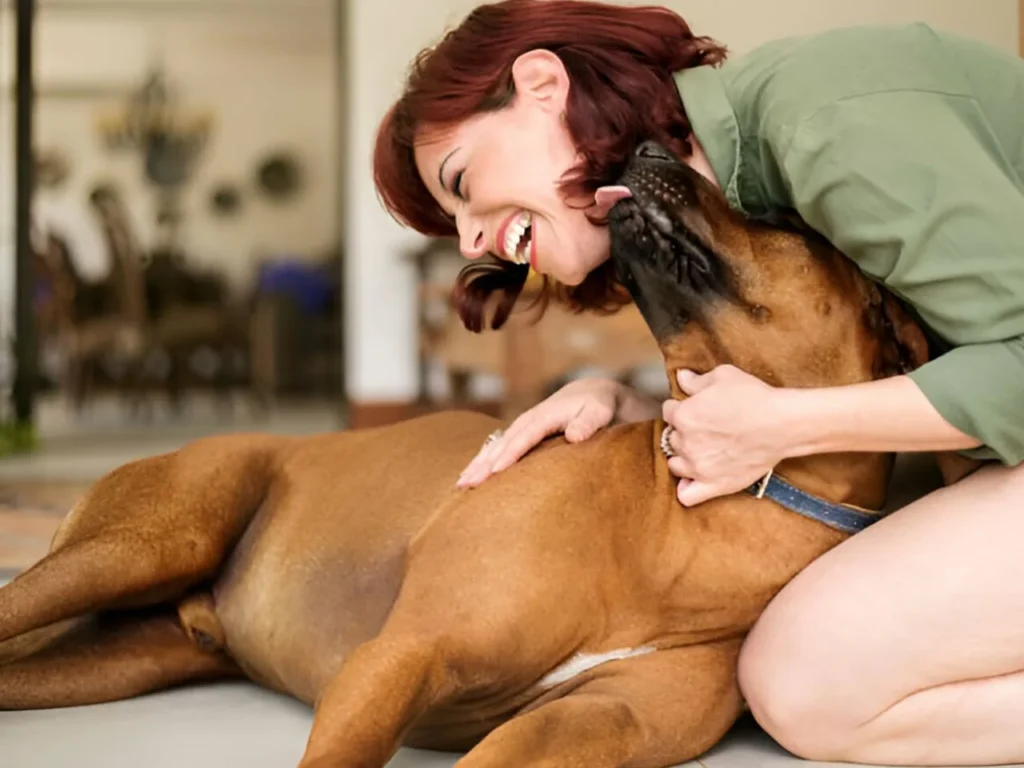
The Role Of Socialization In Dog Behavior
Understanding why dogs lick faces requires insights into their social behaviors. Socialization plays a key role in shaping the actions of canines, often influencing how they interact with humans and animals alike. An ingrained aspect of their development, socialization affects various facets of their behavior, including the tendency to lick.
Early Puppy Experiences
In the world of puppies, those first weeks are critical. Early experiences lay the groundwork for future behavior. Exposure to different people, pets, and environments teaches them what’s safe and appropriate.
- Puppies learn boundaries through interactions with littermates and their mother.
- Positive human contact during this period can reduce aggressive tendencies.
- It sets the stage for gentler face-licking later in life.
Impact Of Socialization On Licking Habits
The way a dog is socialized can greatly affect its licking habits. Dogs use licking as a form of communication and expression. When done in moderation, it’s a sign of affection.
- Licking can denote respect for a perceived pack leader.
- If not socialized properly, a dog may lick more aggressively.
- Consistent, positive interactions help dogs understand human boundaries.
Owners can guide their furry friends to express themselves in a calmer, less invasive manner. Training, reinforcement, and regular social interactions are crucial. A dog well-versed in social etiquette is less likely to overwhelm you with aggressive face licks.
Health Conditions That Trigger Excessive Licking
Is your furry friend showering you with their tongue? While a dog licking your face may seem like a sign of love, aggressive licking could hint at underlying health issues. Dogs can’t tell us when they’re in pain or discomfort, but they can show us through behaviors like excessive licking.
Dental Issues And Pain
Imagine having a toothache with no way to say, “It hurts!” That’s how dogs often feel. Dental issues like gum disease, tooth decay, or mouth injuries can make your dog lick obsessively.
- Bad breath
- Red or swollen gums
- Difficulty eating
These signs could indicate dental problems leading to non-stop licking. A vet visit can confirm the issue and bring relief to your pet.
Skin Allergies And Discomfort
It’s not just about dental woes. Skin allergies can also drive a dog to lick. Itchiness and discomfort demand attention, and licking is a natural response for pooches.
| Symptoms of Skin Allergies | Actions to Take |
| Itchy red spots | Check for fleas or ticks |
| Excessive scratching | Consult your vet about allergies |
These symptoms are tell-tale signs of discomfort that may cause your dog to lick more than usual. Identifying and treating allergies can help curb the behavior.
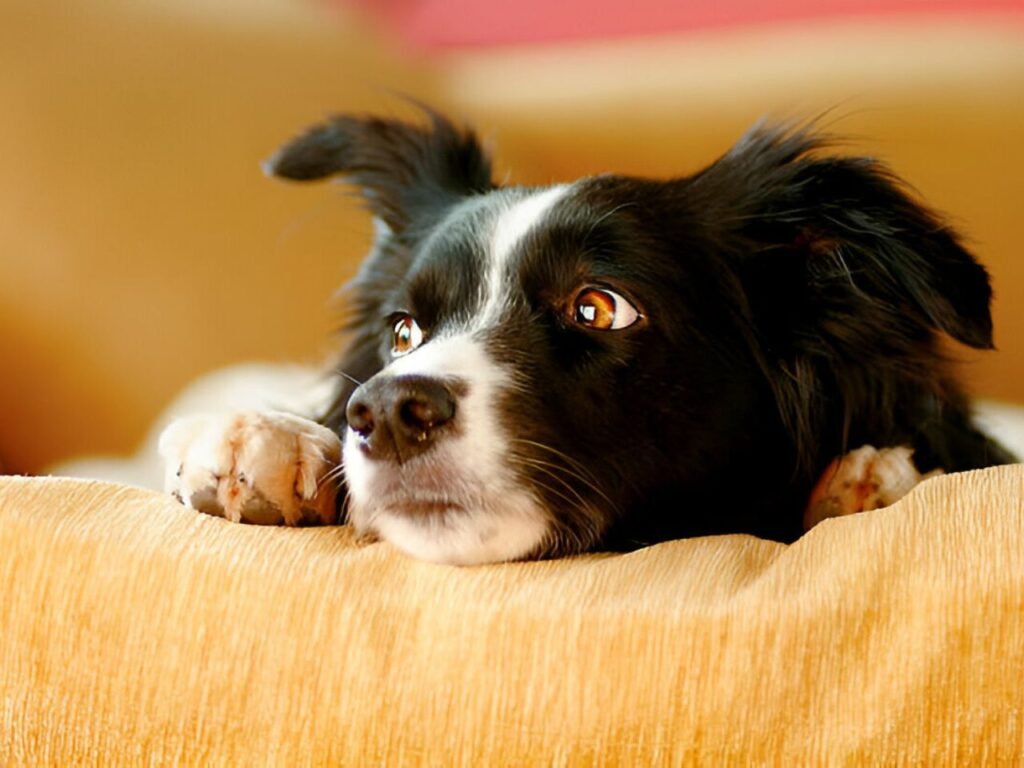
Exploring Anxiety And Stress In Dogs
When your furry friend suddenly starts giving you face washes more intensely than usual, there might be more behind those wet kisses. In the world of dogs, licking can be a sign of many feelings, from love to stress. Like humans, our canine companions experience anxiety, and it shows in various ways, including aggressive licking.
Anxiety-related Licking Behavior
Dogs often turn to licking as a way to deal with their stress. When your dog licks your face aggressively, they might be trying to express their inner turmoil. It’s a behavior seen in dogs trying to soothe themselves or ask for attention and comfort. Spotting these anxiety cues early can help manage your pet’s stress levels.
- Excessive licking of your face
- Quick, repetitive tongue movements
- Pacing and whining
Calming Techniques For Stressed Pets
Helping your dog cope with anxiety is crucial for their well-being. Below are some calming techniques:
| Technique | How It Helps |
| Consistent Routine | Establishes security and predictability. |
| Exercise | Reduces anxiety through physical activity. |
| Quiet Space | Offers a retreat when overwhelmed. |
| Comfort Objects | Provides familiar scents and textures. |
| Professional Help | Addresses underlying anxiety disorders. |
Remember to be patient and calm yourself. Your dog senses your mood and reacts to it. Encourage positive behavior with treats and praises. If the problem persists, seek advice from a vet or a dog behaviorist. They understand stress in pets and can provide tailored solutions for your dog’s happiness.
The Quest For Attention: Understanding Your Dog
Ever found your furry friend licking your face with what seems like wild enthusiasm? This behavior is common. Dogs seek attention in various ways, and face licking stands out as a notable one. Unpacking the reasons behind this action involves looking at instinctive behavior, social cues, and the bond your dog shares with you. Let’s get to the bottom of why your dog might lick your face aggressively.
Attention-seeking Licking
Dogs thrive on interaction and notice how we respond to different behaviors. Energetic face licking might just be their way of saying, “Look at me!” or “Let’s play!” Here are a few reasons dogs might lick your face to get your attention:
- Expressing love: Dogs often lick to show affection.
- Mimicking maternal bonds: Mothers lick pups for grooming and comfort.
- Seeking rewards: If you’ve smiled or laughed before, they’ll try again.
Noticing the context helps understand their motives. A wagging tail and playful eyes often mean they’re in for some fun. If they’re persistent, they might need something more, like a walk or a check-up.
How To Provide Healthy Attention
Encouraging good behavior means providing the right attention at the right time. Dogs need clear guidance and positive reinforcement. Here’s how to ensure your dog’s attention-seeking is healthy and balanced:
- Establish routines: Set times for play, walks, and rest.
- Use positive reinforcement: Reward calm behavior with treats or praise.
- Train with commands: Teach them to sit or stay for focused attention.
Remember, ignoring unwanted licking can help reduce it. Offering affection when they’re calm supports good habits. If the licking feels too much or doesn’t stop, consult a vet or a behaviorist, as it might signal stress or a health issue.
Behavioral Training To Curb Over-licking
Dogs lick faces for many reasons, to show love or seek attention. But what if your furry friend’s licking feels more like an over-enthusiastic mop attack? That’s when behavioral training steps in. By guiding your dog’s licking habits, you can foster a healthier bond and a drier face! Let’s explore how to gently teach your pooch the right way to express their adoration.
Setting Boundaries
Establish a licking ‘code of conduct’ for your dog. Start with simple commands like “No lick.” Stay consistent. If your dog licks too much, calmly say the command and turn away. Repeat until they grasp the rule. This will help them understand face-licking limits.
Positive Reinforcement Strategies
Positive reinforcement proves effective in training. Praise your dog when they obey your “No lick” command. Offer them treats or their favorite toy as a reward. This tells your dog polite behavior equals positive outcomes.
Remember, use diverse rewards to keep the training exciting. Here’s a simple list of positive reinforcements:
- Treats: Small, tasty snacks work wonders.
- Praise: A warm “Good dog!” goes a long way.
- Playtime: A quick game signals approval.
Pack Behavior And Dominance
Dogs often lick our faces with enthusiasm. Some think it’s about who’s boss. Yet it’s more about affection and communication. Dogs do what their wolf ancestors did. They lick to show respect and understanding. It’s not about aggression, but rather a form of interaction within their pack, which now includes humans.
The Myth Of Dominance In Dogs
Dominance is a myth. Many believe dogs lick to show dominance. But experts disagree. Dogs don’t try to dominate with licking. They do it out of love and respect. Science shows that dogs are not striving for control when they lick you.
How Pack Dynamics Influence Licking
In dog packs, licking has many purposes. It’s about bonding and showing where they stand. Lick your face? They’re saying you matter. Dogs see their family as their pack. By licking your face, they engage in a social act. It’s a sign of their loyalty and trust. It’s their way of connecting to you, their pack.
- Licking is not about aggression.
- Dogs use licking to communicate.
- Licking shows love and respect.
| Behavior | Meaning |
| Licking | A sign of respect |
| Face licking | Showing affection |
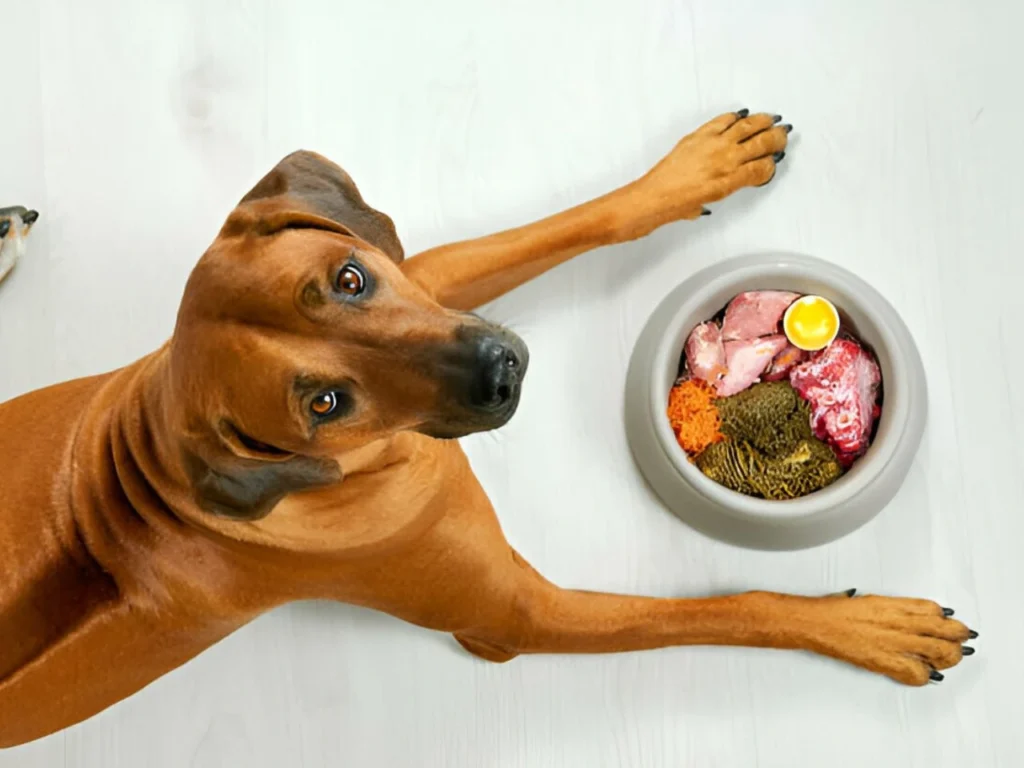
Nutritional Deficiencies And Licking Compulsions
Does your dog lick your face more than usual? It may signal nutritional needs.
Identifying Nutritional Gaps
Dogs communicate in many ways, and licking can be a sign of hunger. Aggressive licking might mean your furry friend lacks vital nutrients. Start by understanding what makes a balanced diet for canines.
- Protein: Supports growth and repairs body tissues.
- Fats: Essential for energy and cell function.
- Carbohydrates: Provide energy and help with digestion.
- Vitamins and minerals: Necessary for immune function and metabolism.
A vet can help pinpoint what your dog is missing. A blood test or exam could reveal the cause. Look for signs like dull fur, low energy, and changes in appetite.
Dietary Adjustments For Healthier Habits
Adjust your dog’s diet to curb aggressive licking.
| Supplement | Benefit |
| Omega-3 Fatty Acids | Improves skin and coat health. |
| Probiotics | Aids digestion and gut health. |
| Antioxidants | Boosts immune response. |
Consider replacing treats with healthier options. Reduce processed foods. Introduce fresh fruits and vegetables. Ensure clean, fresh water is always available. Food puzzles can turn mealtime into a brain game, slowing down eating and making it fun.
A balanced diet promotes overall health. Healthy dogs lick less. For personalized advice, consult a vet or a pet nutritionist. They can design a diet plan tailored to your dog’s specific needs. Keep track of changes, and you’ll likely see a decrease in aggressive licking!
The Impact Of Taste And Smell
Dogs love to explore the world with their noses and tongues. This can lead to some intense face-licking sessions. To understand this, let’s dive into the roles taste and smell play in your dog’s behavior.
Attractive Scents And Flavors
Why does your face appeal to your pooch? It could be the traces of food or even your natural skin oils. Dogs find these odors and taste irresistible and may lick more aggressively as a result.
- Remnants of your last meal might still linger around your mouth.
- The saltiness of your skin can be appealing.
- Skin care products often have inviting scents and tastes.
Understanding Dogs’ Powerful Senses
Dogs have an acute sense of smell over 40 times stronger than humans. They can also taste certain flavors we can’t. This combination often leads to a fascination with licking your face.
| Sense | Comparison to Humans |
| Smell | Over 40x stronger |
| Taste | Detects even subtle flavors |
By licking your face, they’re exploring and experiencing your unique blend of scents and flavors. It’s like they’re getting to know you – inside and out!
Building A Better Bond With Your Dog
Understanding the reasons behind your dog’s forceful face-licking is key to fostering a stronger bond. Dogs communicate love and seek attention in various ways, with licking being a common gesture. Let’s delve deeper into how to build a healthier, happier relationship with your furry friend.
Effective Communication
Dogs understand the world differently than we do. To connect with your dog, start by learning their language. Recognize the signs of affection, stress, and excitement that lead to licking. Respond with clear instructions and consistent behavior to guide them.
- Use positive reinforcement to reward behavior you want to see again.
- Stay calm when your dog gets too excited, showing them the right way to express their feelings.
- Simple gestures and words can help build understanding and control licking.
Quality Time And Mutual Understanding
Spend quality time with your dog to form a deeper bond. Engage in regular playtime and walks to create positive experiences together. This shared time reduces stress and excessive licking out of anxiety or boredom. Pay attention to what your dog enjoys and make that part of your routine.
- Take walks in new environments for stimulation.
- Provide mental and physical challenges during play.
- Set aside time for cuddling and calm interaction.
Mutual Understanding
Mutual understanding is crucial for a strong bond. Learn to read your dog’s needs and respond appropriately. Your dog’s aggressive licking might be a sign of affection or an appeal for more interaction. Understanding these cues helps prevent miscommunication and strengthens your connection.
| Dog’s Action | Possible Meaning | Your Response |
| Aggressive licking | Seeking attention or affection | Provide focused interaction |
| Whining with licking | Feeling anxious or stressed | Address the source of stress |
| Licking with jumping | Overexcitement | Teach calm behaviors |
When To Consult A Professional
Occasionally, our furry friends showcase their affection in a way that seems a bit too much. An aggressive face-licking habit can be one such example. It’s crucial to understand when this behavior crosses the boundary into something concerning. Knowing when to consult a professional can ensure your dog’s well-being and your peace of mind.
Recognizing When Licking Is A Problem
Not all licking is bad. Yet, specific signs indicate it’s time to seek advice. Observe these behaviors that suggest the licking is more than just playful:
- Excessive licking without clear cause
- Licking that leads to skin irritation on your face
- Behavior paired with signs of anxiety or stress
- Persistent licking despite attempts to redirect
Seeking Help From Veterinarians And Behaviorists
If you spot any concerning signs, take action. Early intervention by professionals can prevent issues from escalating.
| Professional | Role | How They Help |
| Veterinarian | Medical Assessment | Checks for underlying health issues causing the behavior |
| Behaviorist | Behavioral Evaluation | Designs a behavior modification plan |
FAQ For Why Does My Dog Lick My Face Aggressively
Why Does My Dog Lick My Face So Intensely?
Dogs often lick faces to show affection, seek attention, or because they’re attracted to the salty taste of human skin. It’s also a sign of submissiveness or simply a greeting behavior inherited from their wolf ancestors.
Why Won’t My Dog Stop Licking My Face?
Your dog may lick your face to show affection, seek attention, or respond to the taste of salty skin. It’s a natural behavior that can also be reinforced by positive reactions from owners. Consistent, gentle training can help discourage excessive licking.
Should I Let My Dog Lick My Face?
It’s best to avoid letting your dog lick your face. Dogs can carry bacteria that might be harmful to humans, potentially causing infections. Prioritize hygiene and opt for safer ways to show affection to your pet.
Is It Bad If I Don’t Let My Dog Lick Me?
No, it’s not bad to avoid dog licks. Personal comfort and hygiene are valid reasons. It can prevent the spread of bacteria from dog to human.
Understanding your dog’s vigorous face licking is key to reinforcing positive behaviors. It’s often a sign of affection or a request for attention, yet consistent boundaries are crucial. Seek a vet’s guidance if behavior shifts abruptly. Cherish the loving moments, but teach your furry friend the right way to express it.
